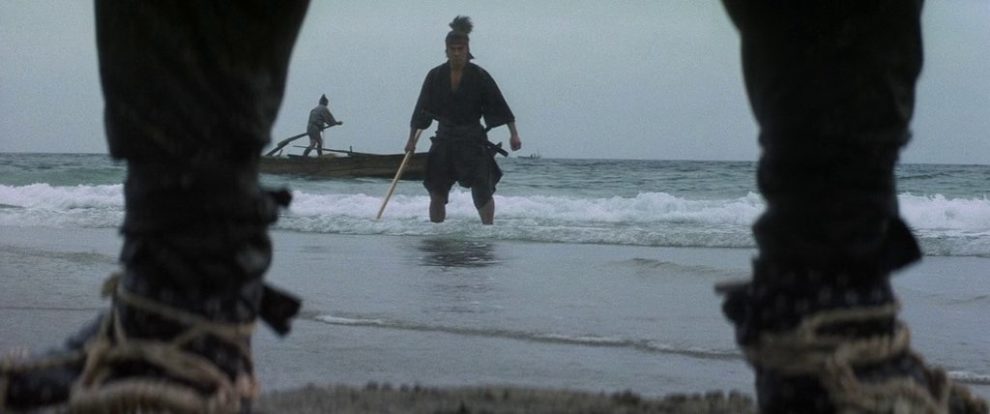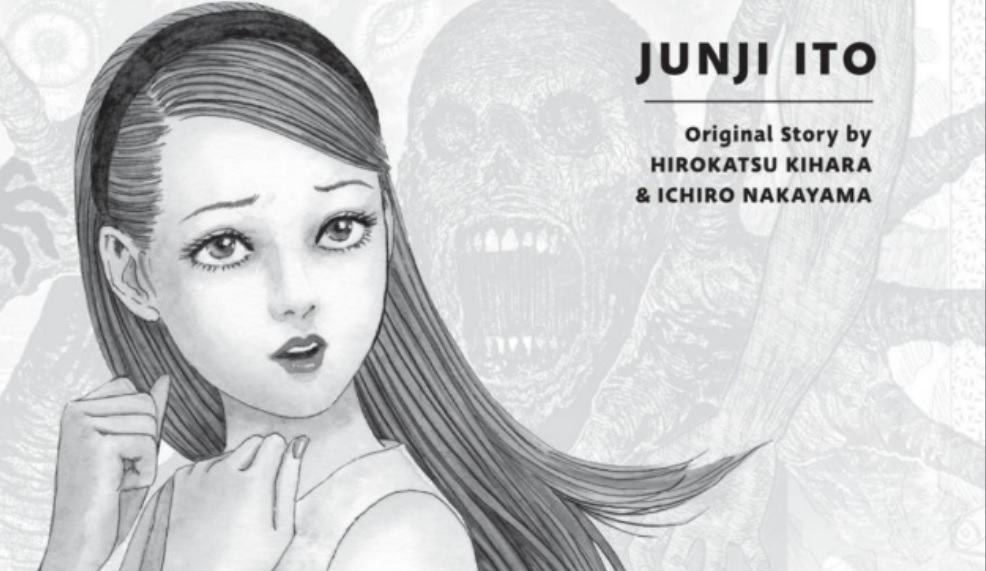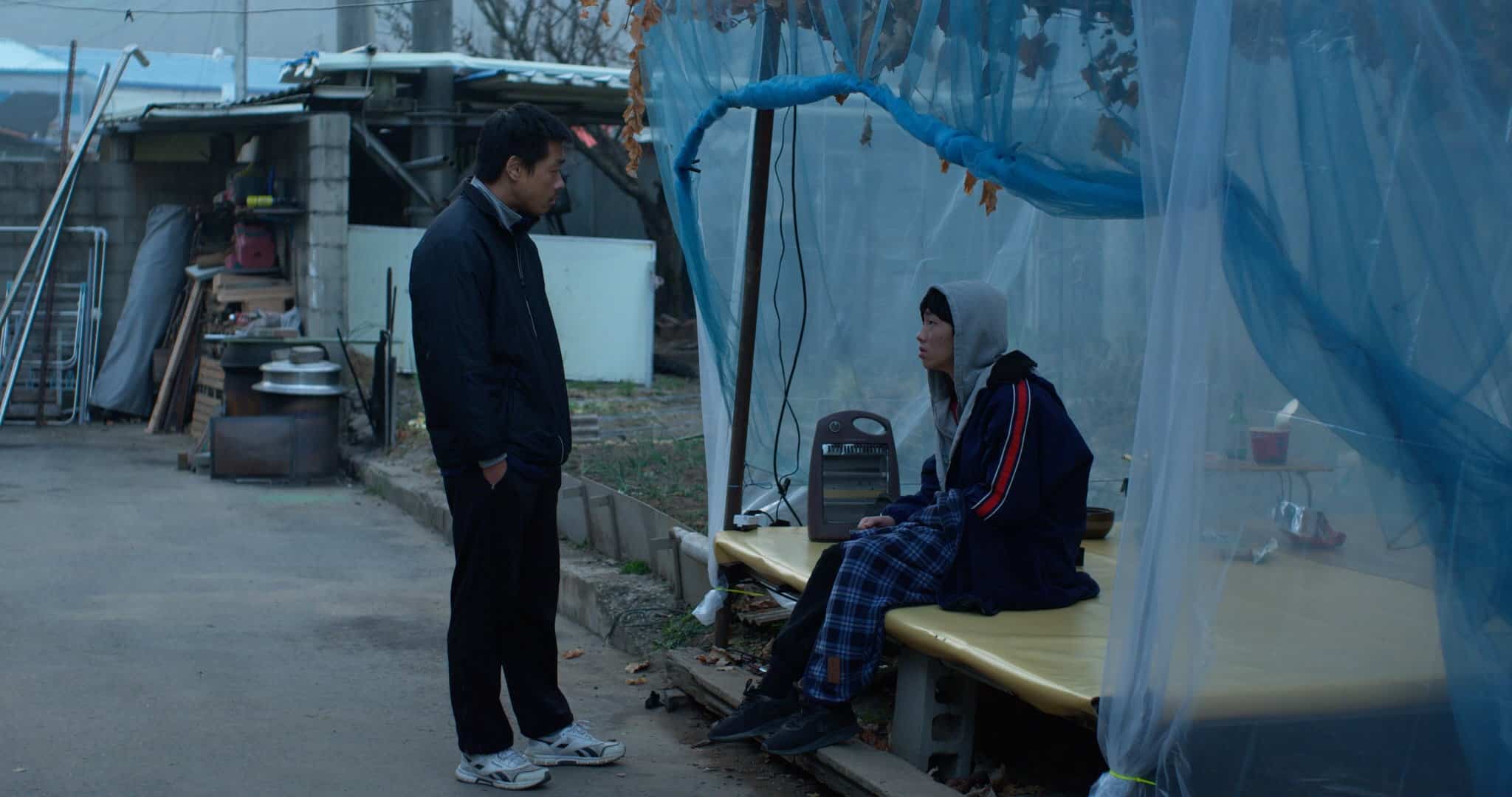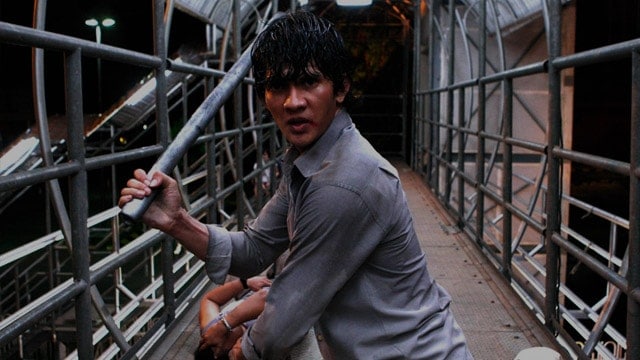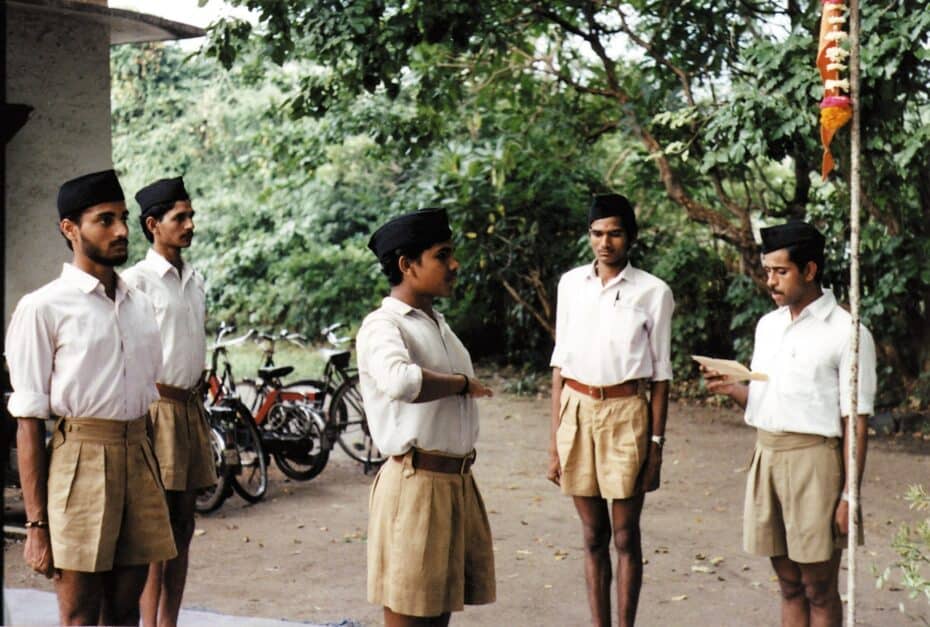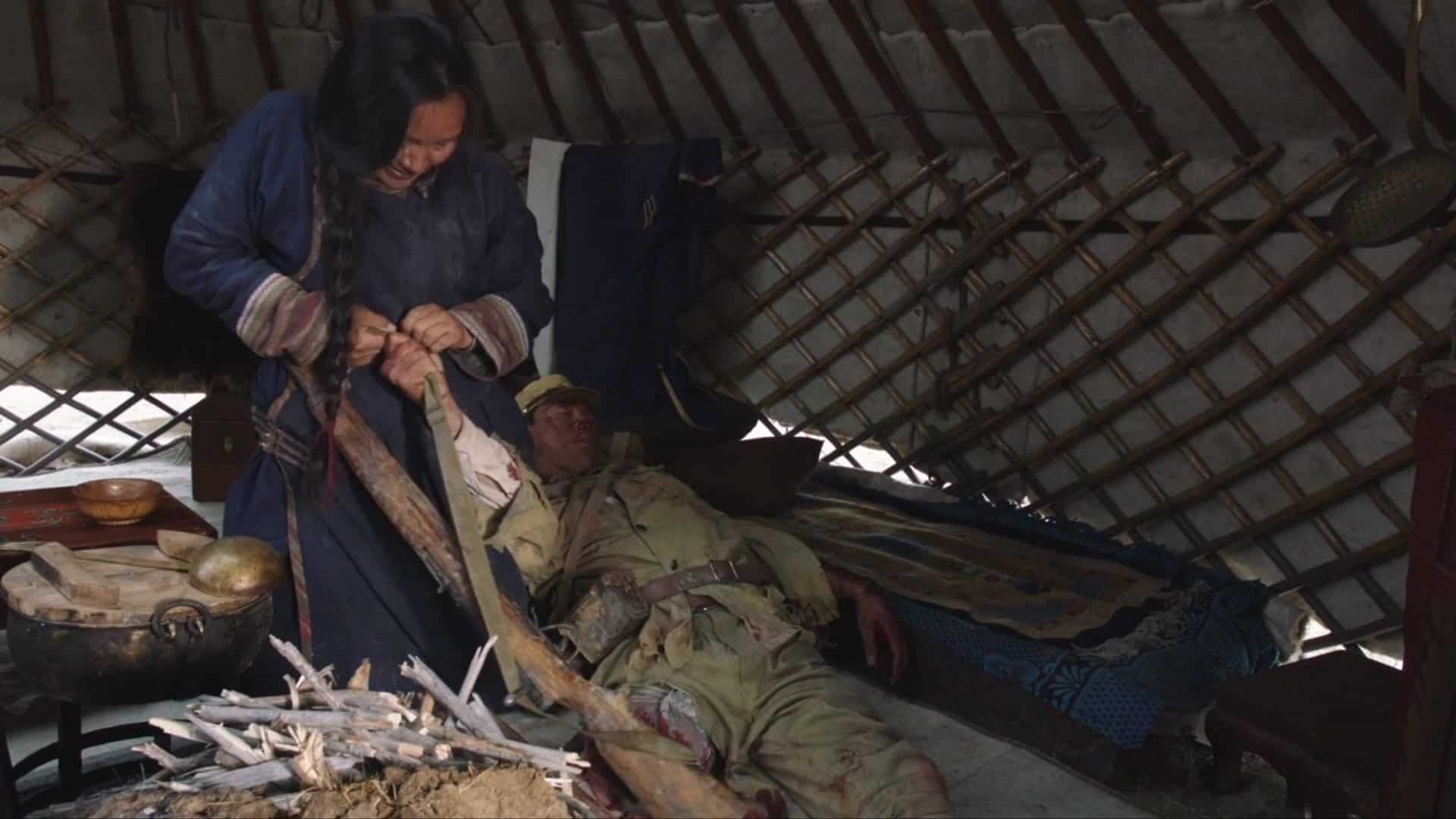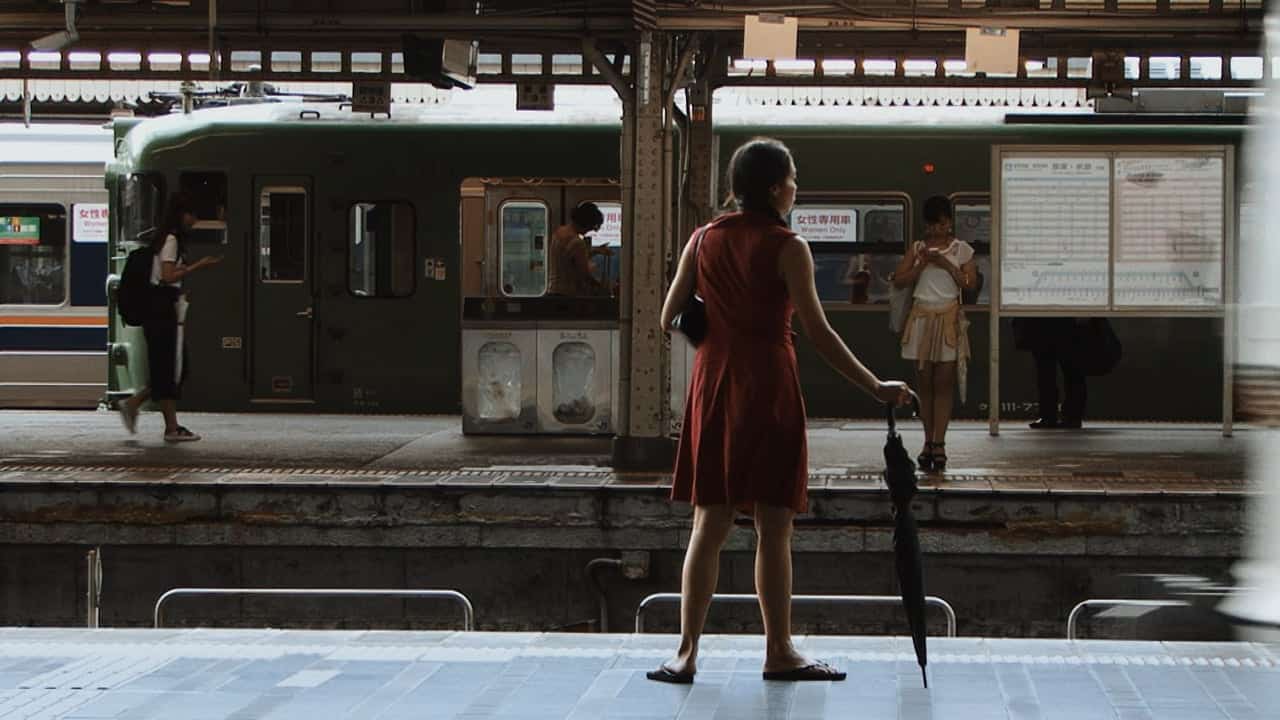Miyamoto Musashi has been solidified in history for his phenomenal skills as a swordsman. As such, he's been depicted in cinema for decades. His story has been shown as a hopeful journey in Hiroshi Inagaki's “Samurai Trilogy” or as a Zen-seeking quest in Tomu Uchida's five-part film series. The ronin would even be used as a symbol of patriotism in the propaganda feature “Miyamoto Musashi,” directed by Kenji Mizoguchi. Yet, the famed warrior was far from perfect, and there was more to him besides his sword skills. He was also a human and one with imperfections for that matter. These complexities are showcased in Tai Kato's gritty but human jidaigeki epic “Miyamoto Musashi.” An alternative title for the picture is “Sword of Fury.”
Like many adaptations, the film is based on Eiji Yoshikawa's epic novel “Musashi,” a fictionalized account of the famous ronin with touches of the known history on him. Shochiku distributed the project, and Tai Kato, a filmmaker no stranger to gritty features, would be appointed director. Cast in the role of Miyamoto Musashi is leading man Hideki Takahashi, a popular star at the time, notably appearing in some of the works of Seijun Suzuki. Beyond being a pretty face, Takahashi was hailed for his range as an actor, making him a perfect casting choice as the title warrior. Appearing as Musashi's rival, Sasaki Kojiro, is Jiro Tamiya, in a part that would be a big comeback for him as an actor following his expulsion from the movie business due to clashing with studio executives. Even from the marketing, it was made abundantly clear this cinematic rendition of the skilled swordsman Miyamoto Musashi was unlike any other depiction and significantly darker than his portrayal in previous works. Naturally, audiences were shocked by this nonconformist look at the famous samurai. To this day, it is viewed as one, if not the most historically accurate portrayal of him in cinema.

Following their loss at the Battle of Sekigahara, Takezo and his childhood friend Matahachi barely escape. The two are saved from death by a girl named Akemi and her mother. Time passes, Matahachi throws away his past life, and Takezo attempts to reconcile with his own but is ostracized as a result, including by the vengeful mother of his best friend. A priest named Takuan and a woman named Otsu save the disgraced man from death. Takezo disappears for a few years and becomes a masterless samurai with the new name Miyamoto Musashi. He is desperate to strive for greatness as a warrior and builds notoriety for himself because of his outstanding swordsmanship. He seeks enlightenment but continues to fall deeper into despair. Throughout the story, the lead develops through his interactions with the people around him, including his love interest, reconnecting with his best friend, building a stream of vendettas, and eventually going up against a warrior named Sasaki Kojiro, who potentially can outmatch the main protagonist.
Unlike many other versions, which stretch Eiji Yoshikawa's writings into multiple entries, Tai Kato condenses it into one two-and-a-half-hour film. The first half primarily follows the ambitious man's opportunist quest, whereas the second half goes deeper into the warrior's mind while also building up to his final confrontation against Kojiro. As a result, some side characters are excluded, and Kato puts his unique spin on certain events within the narrative. These tweaks could be problematic in the hands of a lesser director. Yet, here, it is all done very well. This is not a romanticized examination of events, but a grounded epic instead. The storytelling is superb, giving just the right amount of time to significant portions of the lead's life while subtly giving hints to the grander scope of everything transpiring historically, further emphasized by great world-building.
The sheer brutal nature of this period in Japanese history is highlighted in a way that many pictures of this warrior's tale that came beforehand do not even come close to capturing. The characters are complex and interesting, with this depiction of the titular character being one of the most three-dimensional and human renditions in cinema. Kato does not romanticize Musashi in this movie. Never mind that he is more disheveled and dirty-looking in appearance in this portrayal than before. His strengths are undoubtedly present, such as being a brilliant swordsman, highly intelligent, and a quick-thinking strategist. He, however, is a flawed individual. He is driven in his quest for fame, so much so that he will do anything to achieve it, sometimes being downright cold-blooded. Yet, there are multiple layers to lead. The movie humanizes him, and later on, he shows immense regret and pain for what he has done, attempting to right the wrongs and coming to terms with the damage caused. It is a sad and disturbing tale of a person's confidence and drive for perfection, leading him into a pit of melancholy and showing the consequences of extreme devotion to the Bushido Code.
All the performances are top-notch. Hideki Takahashi is excellent as Miyamoto Musashi. He nails his extreme strive for greatness the warrior pursued while displaying a vulnerable man who was not entirely devoid of humanity. The emotions he captures when the samurai's mistakes catch up to him emotionally are brilliantly shown through Takahashi's performance. Jiro Tamiya is great as Kojiro Sasaki, who, while an enemy to the lead, is shown to be logical and human instead of blatantly villainous. Keiko Matsuzaka is terrific as Otsu and likable, wonderfully bringing a gentle nature to her character and the more humane side of the film's lead. Also incredibly human is Mitsuko Baisho as Akemi, who merely wants to live a happy life but is forced to endure the cruel world around her. Junko Toda nails it as Osugi, whose extreme bloodthirsty drive for vengeance would ultimately be her downfall. Frankie Sakai brings a lot to the table as Honiden Matahachi, whose journey starts in the wrong direction but grows as the story progresses. Sakai also brings a lot of humor to Matahachi but knows when to get serious. Renowned actor Chishu Ryu is very entertaining as Priest Takuan, balancing being a quick thinker with strict humorous tendencies. Other performers such as Toshiyuki Hosokawa and Makoto Sato are also solid here.
Aesthetically, “Miyamoto Musashi” is a gorgeous film with outstanding set pieces and costume design, further enhanced by the great cinematography by Keiji Maruyama. As is common in the work of Tai Kato, the staging of mise-en-scene is mesmerizing, with a lot of long takes, emphasis on movement in steady shots with occasional camera movement, and effective use of close-ups which often enhances the character drama by emphasizing the reactions on their faces. A ton of historical attention to detail adds authenticity to the depicted period. The atmosphere is strong, from beginning to end, with various locations and greatly utilizing weather in many sequences such as snow or rain. The music score by Hajime Kaburagi is effectively somber. It adds a sense of sadness to what is occurring within the narrative instead of the triumphant feel present in other samurai movies. The violence is brutal and effectively adds grit to the feature. Some of the gore, even by today's standards, is shocking. The action scenes are superbly staged and intense, showcasing some of Musashi's most famous battles. The two highlights would be his fight against the entire Yoshioka fencing school at Ichijoji and the climatic one-on-one fight between him and Sasaki Kojiro on a rainy beach on Ganryu Island.
First-time viewers will surely be shocked by this grey area depiction of a samurai often idolized in pop culture. Yet beyond that, the movie is a highly recommended viewing. “Miyamoto Musashi” is a fantastic film that deserves more international recognition. It is the engaging and human story of a flawed man's journey for greatness, only to be filled with sorrow and come to grips with his actions later. Tai Kato took risks going against a preconceived ideal image of Musashi and revealing a complex individual.


